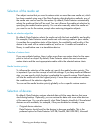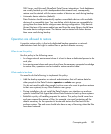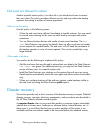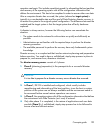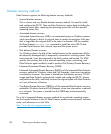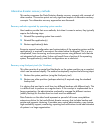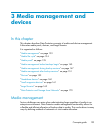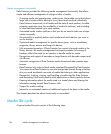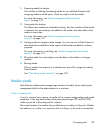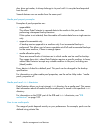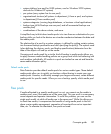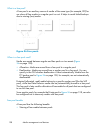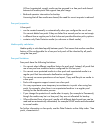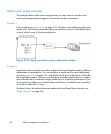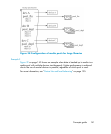Media management functionality
Data Protector provides the following media management functionality that allows
simple and efficient management of a large number of media:
• Grouping media into logical groups, media pools, that enable you to think about
large sets of media without having to worry about each medium individually.
• Data Protector keeps track of all media and the state of each medium, the data
protection expiration time, the availability of media for backups, and a catalog
of what has been backed up to each medium.
• Automated media rotation policies so that you do not need to take care of tape
rotation manually.
• The possibility to explicitly define which media and which devices you want to
use for backup.
• Optimized media management for specific device types, such as standalone,
magazine, library devices and large silo devices.
• Fully automated operation. If Data Protector has control of enough media in the
library devices, the media management functionality enables the running of
backups without the need for an operator to handle media for weeks.
• Recognition and support of barcodes on large libraries with barcode support and
silo devices.
• Automatic recognition of Data Protector media format and other popular tape
formats.
• Data Protector only writes to blank media initialized (formatted) by Data Protector.
You cannot force Data Protector to overwrite foreign tape formats during a backup,
thus you avoid accidental overwrites of media that belong to other applications.
• Recognition, tracking, viewing, and handling of media used by Data Protector
and separating it from media used by other applications in library and silo devices.
• Keeping information about the media used in a central place and sharing this
information among several Data Protector cells.
• Support for media vaulting.
• Interactive or automated creation of additional copies of the data on the media.
This chapter describes the above functionality in more detail.
Media life cycle
A typical media life cycle consists of the following steps:
Media management and devices134



